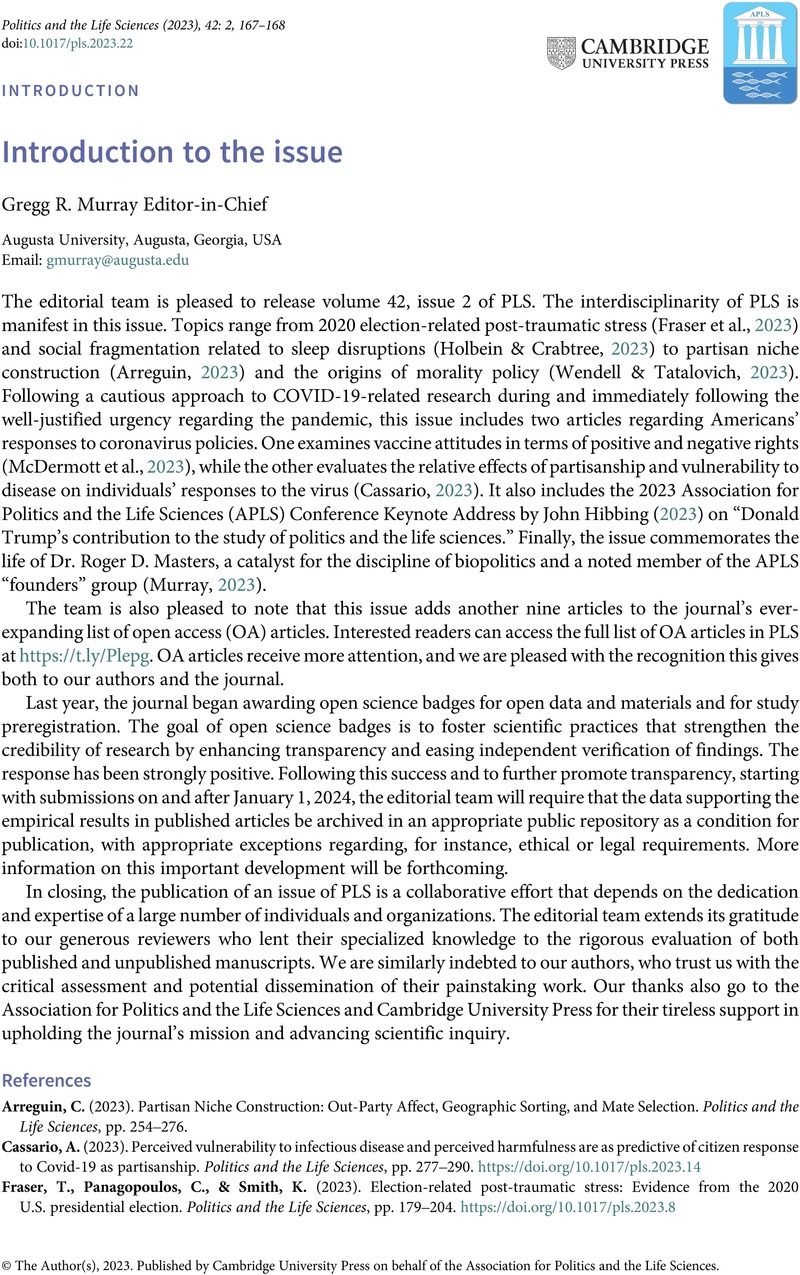No CrossRef data available.
Article contents
Introduction to the issue
Published online by Cambridge University Press: 15 November 2023
Abstract
An abstract is not available for this content so a preview has been provided. Please use the Get access link above for information on how to access this content.

- Type
- Introduction
- Information
- Copyright
- © The Author(s), 2023. Published by Cambridge University Press on behalf of the Association for Politics and the Life Sciences
References
Arreguin, C. (2023). Partisan Niche Construction: Out-Party Affect, Geographic Sorting, and Mate Selection. Politics and the Life Sciences, pp. 254–276.CrossRefGoogle Scholar
Cassario, A. (2023). Perceived vulnerability to infectious disease and perceived harmfulness are as predictive of citizen response to Covid-19 as partisanship. Politics and the Life Sciences, pp. 277–290. https://doi.org/10.1017/pls.2023.14
CrossRefGoogle Scholar
Fraser, T., Panagopoulos, C., & Smith, K. (2023). Election-related post-traumatic stress: Evidence from the 2020 U.S. presidential election. Politics and the Life Sciences, pp. 179–204. https://doi.org/10.1017/pls.2023.8CrossRefGoogle Scholar
Hibbing, J. R. (2023). Donald Trump’s contribution to the study of politics and the life sciences. Politics and the Life Sciences, pp. 169–178. https://doi.org/10.1017/pls.2023.10
CrossRefGoogle Scholar
Holbein, J., & Crabtree, C. (2023). Do sleep disruptions promote social fragmentation?. Politics and the Life Sciences, pp. 205–233. https://doi.org/10.1017/pls.2023.7
CrossRefGoogle Scholar
McDermott, R., Koong, A., & Kaplan, R. (2023). Examining American Attitudes Toward Vaccination During the COVID-19 Pandemic from the Perspective of Negative and Positive Rights. Politics and the Life Sciences, pp. 291–305.Google Scholar
Murray, G. R. (2023). In memoriam: Roger D. Masters. Politics and the Life Sciences, pp. 323–323.CrossRefGoogle Scholar
Wendell, D. G., & Tatalovich, R. (2023). Status politics is the origin of morality policy. Politics and the Life Sciences, pp. 307–316.Google Scholar


